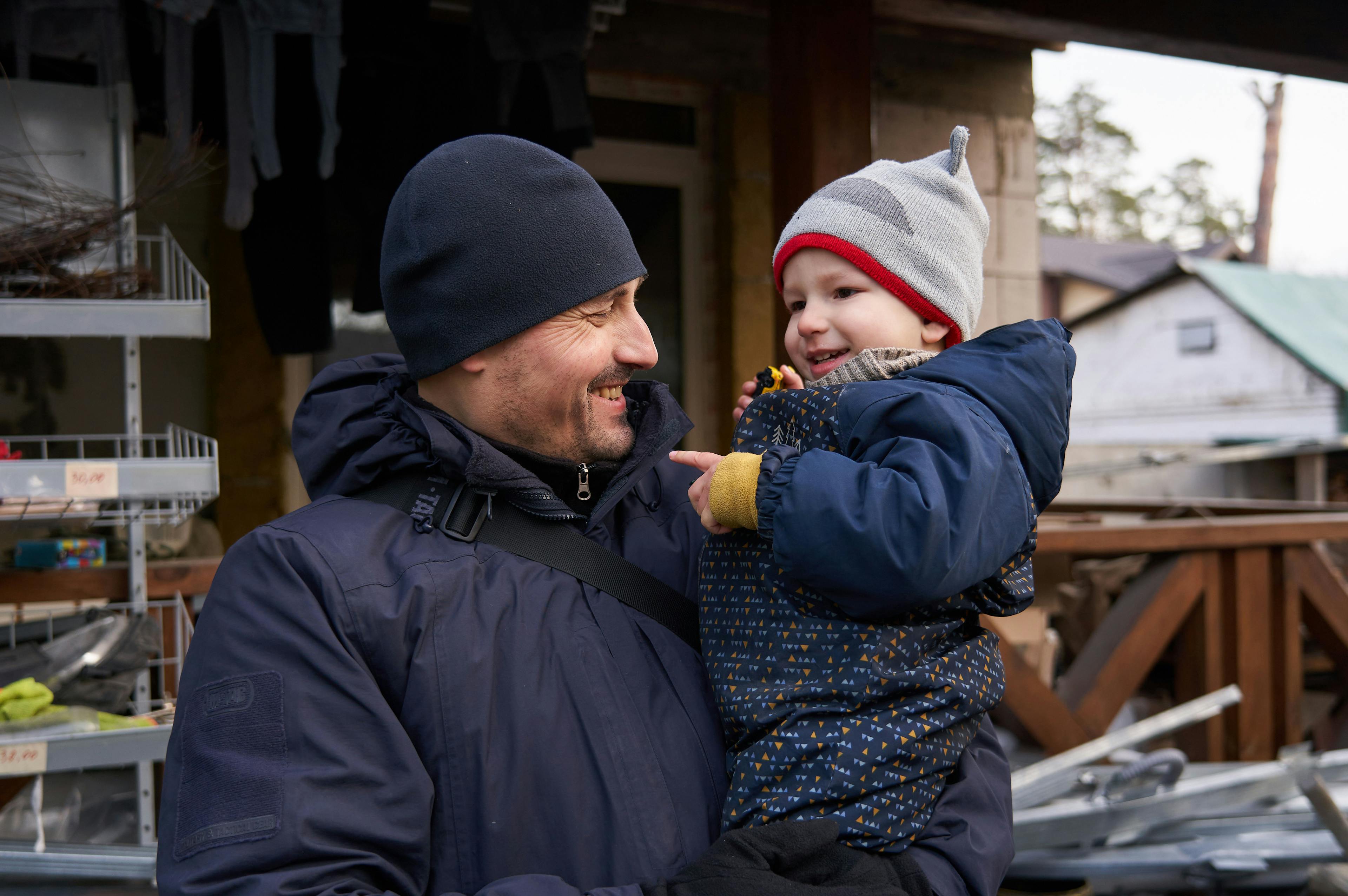
UN0856495
Rising above the waters and restoring hope
Home
Stories
Rising above the waters and restoring hope
How UNICEF moved swiftly in the immediate aftermath of the Kakhovka Dam explosion in Ukraine.
In Ukraine, the war rages on – still with no end in sight. We can’t stop the conflict, but thanks to donors we’ve been able to stay on the ground and keep providing support for kids and their families - even in truly extreme situations.
After an explosion on 6 June destroyed the Kakhovka Dam in Kherson, many homes and towns flooded, with thousands of people displaced. Over 1,300 people fled Kherson on the very first day after the attack, with another 16,000 needing urgent help in the disaster zone.
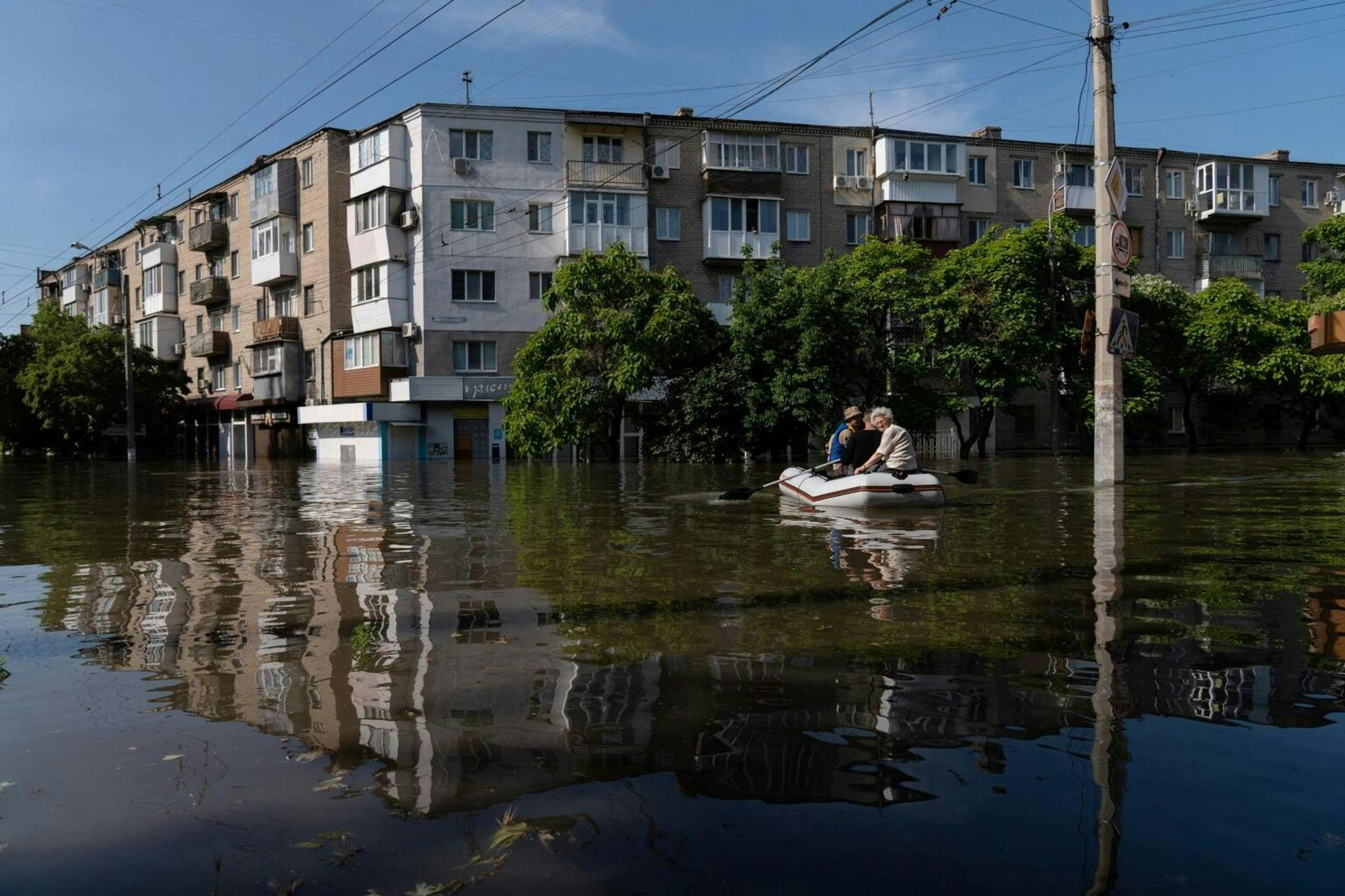
©UNICEF/UN0853282/Filippov
The streets in the central parts of Kherson were flooded up to 5 meters in some places.
We've been in Ukraine for over 25 years – and haven't left, even when the war began – so we were ready with supplies and support for those affected by the Kakhovka Dam emergency. In the hurry to get out of the disaster zone quickly, many families didn’t have time to pack what they needed.
7-year old Anya and her family have lost their entire house. All her father Dmitry could grab was their documents and a few of the children’s belongings.
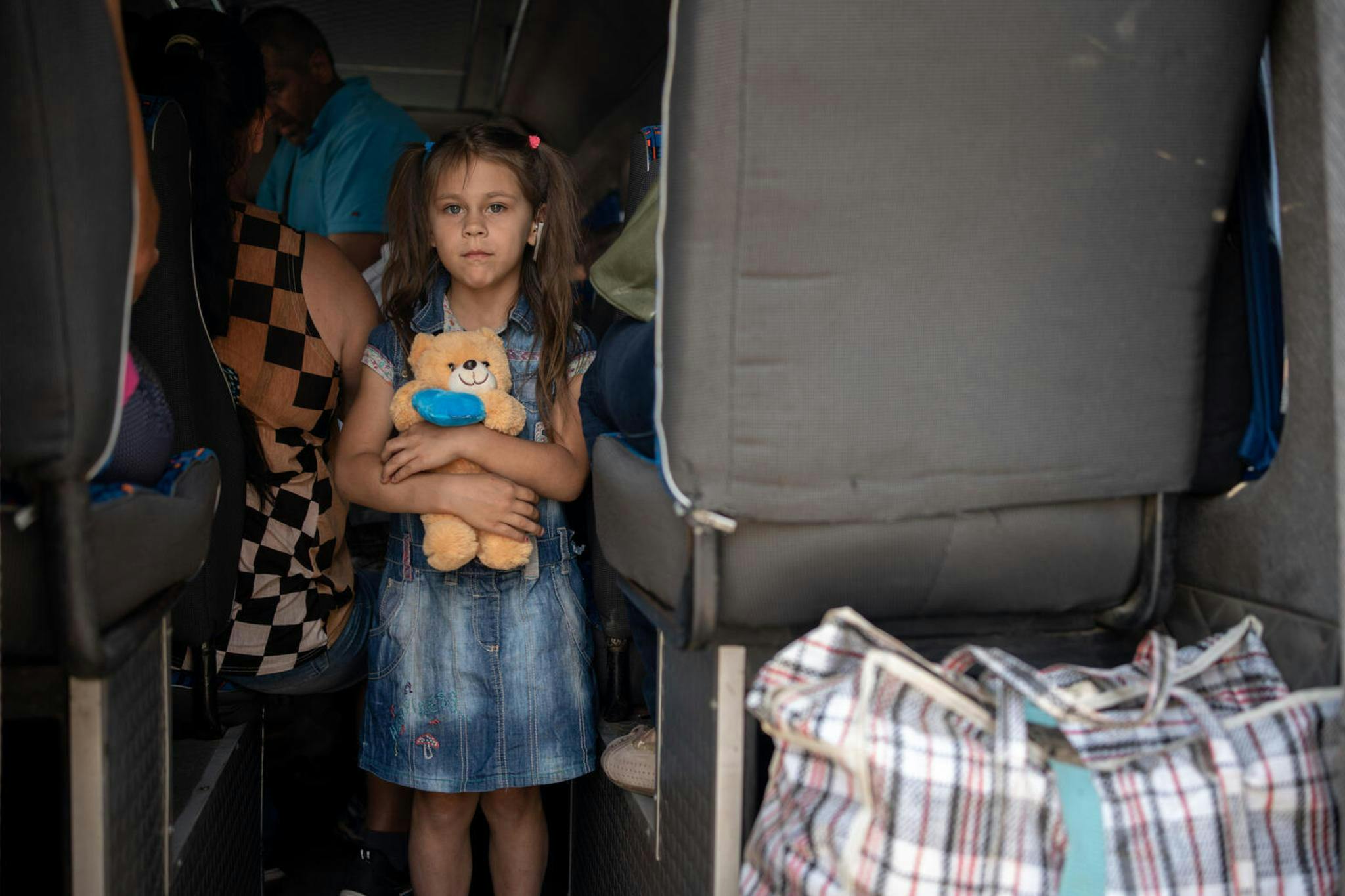
©UNICEF/UN0853474/Filippov
UNICEF mobile teams met evacuees disembarking at train and bus stations, ready to provide medical and psychological care, hand out emergency supplies, and help with resettlement.
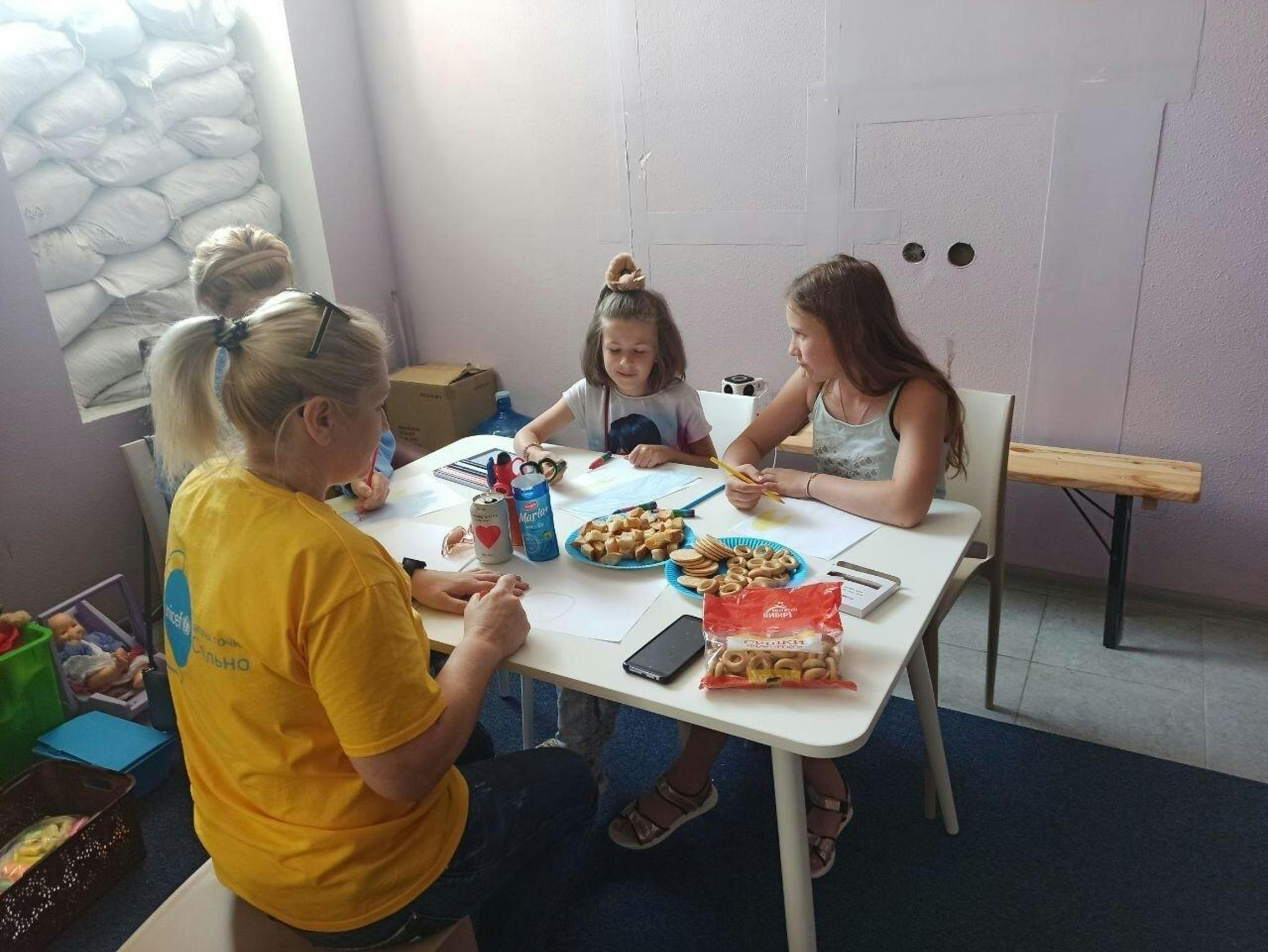
©UNICEF Ukraine/UN0852911
No child should ever have to face the chaos of fleeing a disaster zone. To reduce the risk of stress and trauma, UNICEF set up pop-up Spilno spots at the Kherson train station so that kids had somewhere safe to play while they waited to be evacuated. Meanwhile, this also frees up their parents so they can arrange their next movements.
Spilno means “together” in Ukrainian, and these spaces have been providing social services and protection to children and their families since the war broke out.
"Evacuation is coming. Hold on."
Following the destruction of the dam, Kateryna and her children found themselves getting trapped by rising flood waters, desperate for help.
The first two floors of their house had already flooded – now, trapped on the third floor, the family had run out of food and drinking water.
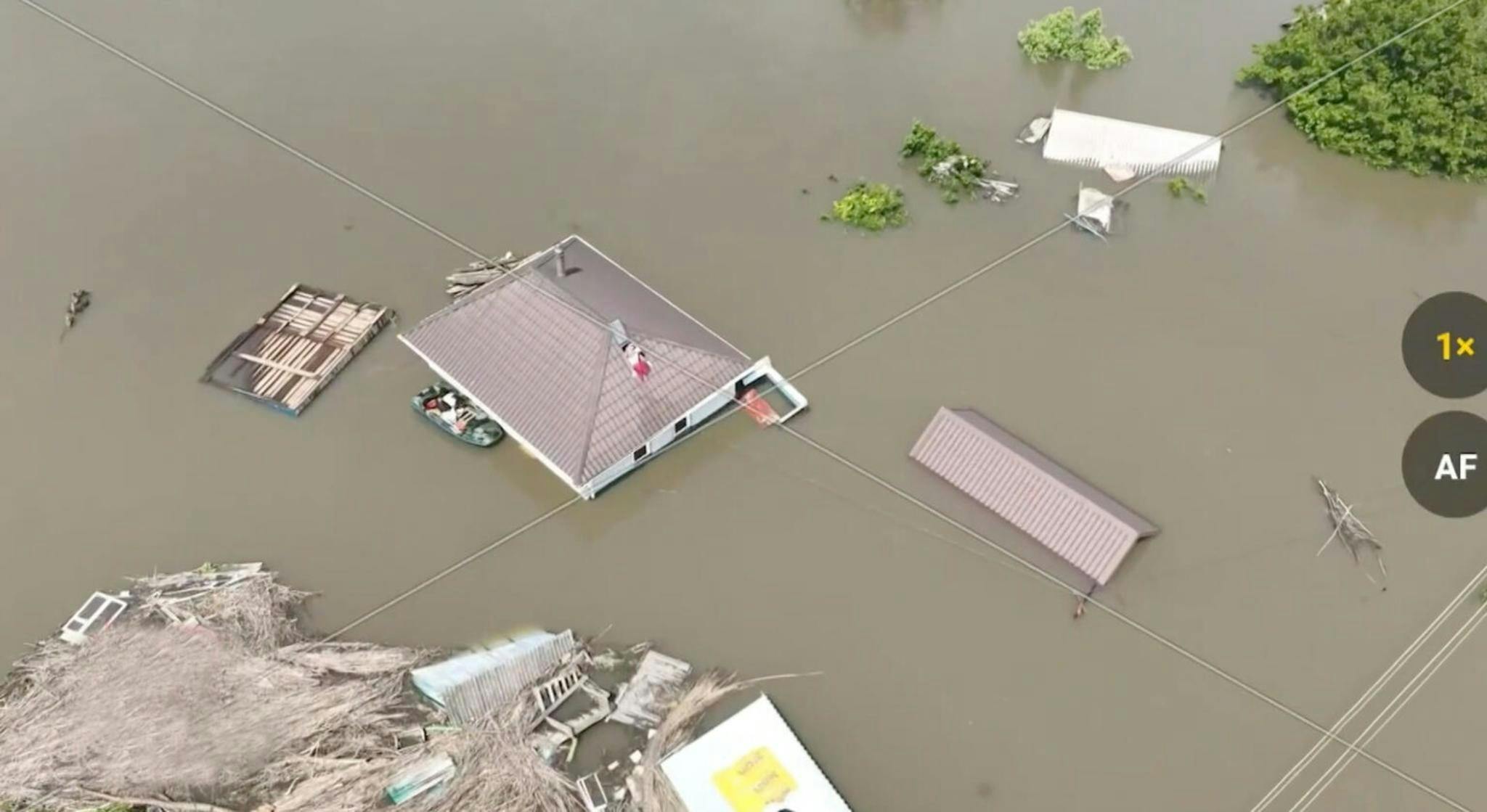
©UNICEF/UN0856493
Kateryna and her children waiting for rescue from a roof.
Luckily, they heard a Ukrainian drone flying over the house and clambered onto their roof hoping to be spotted – which they were. The drone returned to the house several times to drop water and food, along with a note saying that rescue was on the way.
Although they’re now safe with their relatives, Kateryna and her children have no clothing, no money and no home. Thankfully, they and dozens of other affected families have received a humanitarian kit at one of the UNICEF Spilno sites in Kherson, containing soap, blankets, and other basic essentials to help the family as they get resettled.
Kateryna and her family received a humanitarian kit from UNICEF.
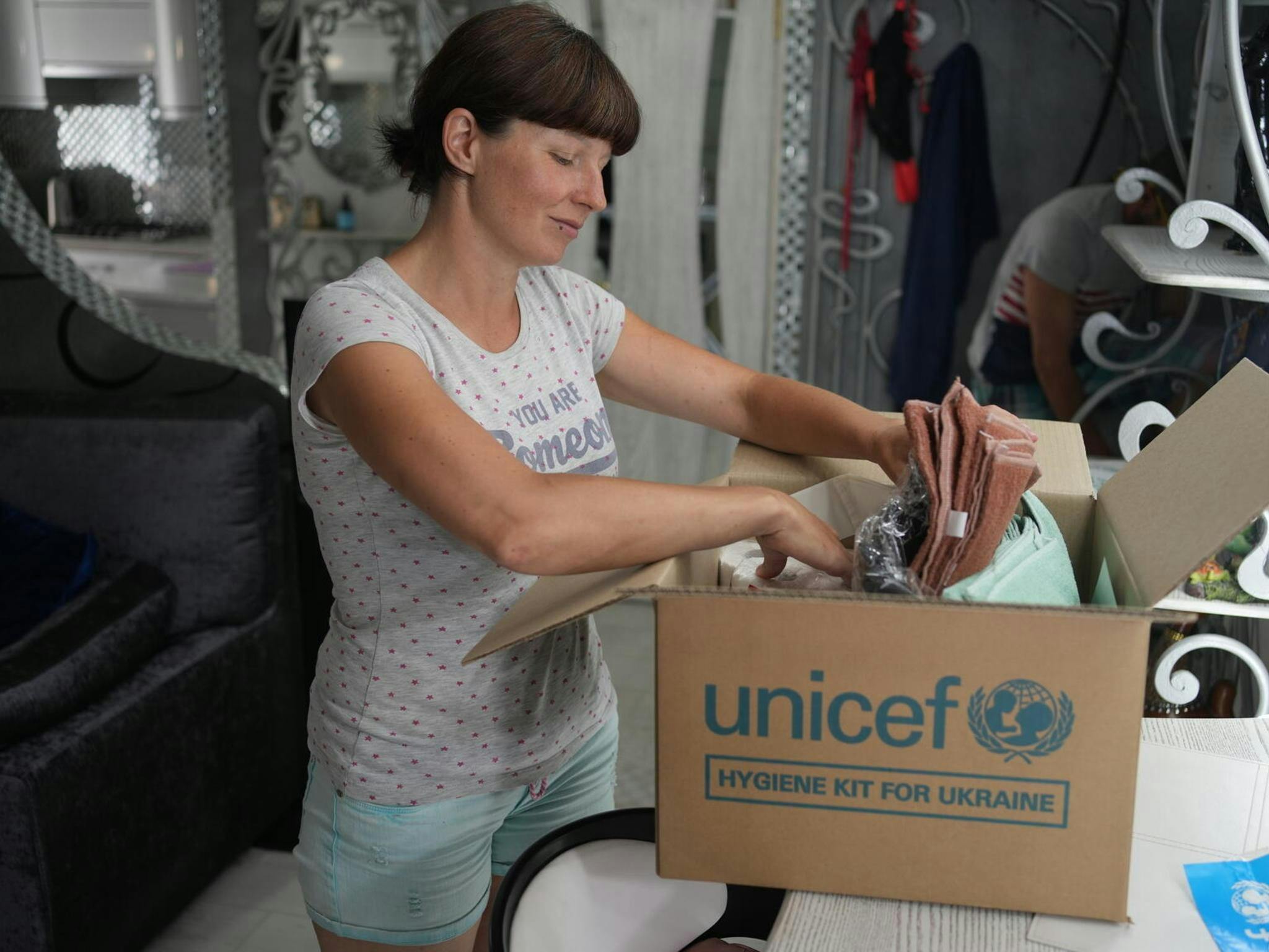
©UNICEF/UN0856497
